Know When to Visit the Dentist for a Dental Crown
Dental crowns play a vital role in restoring damaged teeth, improving aesthetics, and ensuring long-term dental health. If you’re experiencing dental issues or have concerns about the condition of your teeth, it’s important to recognize the signs that indicate a dental crown may be necessary.
Our trusted dentists in Staten Island are here to help you restore your smile. Contact our dental office today by calling (718) 948 5111 for a consultation.
Do You Need a Dental Crown?
Severe Tooth Decay or Cavities
When tooth decay or cavities progress to an advanced stage, a dental crown may be necessary to restore the tooth’s structure and prevent further damage.
- Pain or Tooth Sensitivity: If you experience persistent toothaches or sensitivity to hot or cold substances, it could indicate that the decay or cavity has reached the nerve of the tooth. In such cases, a dental crown may be necessary to protect the tooth and alleviate discomfort.
- Visible Signs of Decay: If you can see visible signs of decay, such as dark spots, holes, or pits on the surface of your tooth, it’s a clear indication that the decay has progressed significantly. A dental crown can help restore the tooth’s structure and prevent further damage.
Cracked or Fractured Teeth
Accidents or trauma can lead to cracked or fractured teeth, compromising their strength and function.
- Pain When Chewing: If you experience pain or discomfort when biting or chewing, it could be a sign of a cracked or fractured tooth. The pressure applied during chewing can cause the crack to widen, resulting in pain. A dental crown can help stabilize the tooth and distribute the biting forces more evenly, reducing pain.
- Sensitivity to Temperature: Cracked teeth can be sensitive to hot or cold temperatures. If you feel a sharp, fleeting pain when consuming hot or cold substances, it may be a sign of a cracked tooth. A dental crown can provide protection and insulation, reducing sensitivity.
- Visible Cracks or Fractures: In some cases, you may be able to see visible cracks or fractures on the tooth. These cracks can vary in size and location, ranging from small surface cracks to more extensive fractures. A dental crown can cover and support the damaged tooth structure, preventing further propagation of the crack.
- Tongue or Cheek Irritation: If a cracked tooth has rough or jagged edges, it can irritate the tongue or inner cheek. You may experience discomfort or notice small cuts or sores in these areas. A dental crown can smooth out the surface of the tooth, eliminating irritation.
Large Fillings
If you have a tooth with a large filling, it may become weak over time.
- Failing or Deteriorating Filling: Over time, large fillings can weaken or deteriorate due to factors such as wear, recurrent decay, or fracture. If you notice that your filling is dislodged, cracked, or no longer providing proper coverage, a dental crown may be necessary to restore the tooth’s strength and function.
- Tooth Sensitivity: Large fillings can make the tooth more sensitive to hot or cold temperatures. If you experience increased sensitivity or discomfort when consuming hot or cold substances, it could be a sign that the filling is no longer adequately protecting the tooth. A dental crown can provide better insulation and reduce sensitivity.
Root Canal Treatment
After undergoing a root canal treatment, the affected tooth may require a dental crown to protect and strengthen it. A crown adds an extra layer of protection, ensuring the longevity of the tooth.
Misshapen or Discolored Teeth
Do you have misshapen or severely discolored teeth that affect your smile? Dental crowns can be an effective cosmetic solution to enhance the appearance of your teeth, providing a natural-looking and uniform smile.
Dental Bridge Attachment
When replacing a missing tooth with a dental bridge, the adjacent teeth that support the bridge may need dental crowns. Crowning these teeth ensures they can provide a stable foundation for the bridge, ensuring a secure and functional replacement.
Cracked Enamel
The outer layer of your teeth, known as enamel, is crucial for protecting the inner structures. If your enamel is cracked or significantly worn down, a dental crown can shield the affected tooth from further damage.
- Visible Cracks or Lines: If you notice visible cracks or lines on the surface of your tooth enamel, it could be a sign of enamel damage. These cracks may be hairline or more significant, depending on the severity of the condition. A dental crown can help protect the cracked enamel and prevent further propagation of the cracks.
- Rough or Jagged Edges: Cracks in the enamel can create rough or jagged edges on the tooth surface. These rough edges can irritate the tongue, cheeks, or gums, leading to discomfort or soreness. A dental crown can smooth out the surface, improving comfort and preventing further irritation.
Tooth Grinding (Bruxism)
Persistent tooth grinding, also known as bruxism, can lead to excessive wear and tear on your teeth. Dental crowns can help restore the shape and structure of your teeth, preventing further damage caused by grinding.
Dental Implant Restoration
When replacing a missing tooth with a dental implant, a dental crown is typically used to cover the implant post. This crown acts as a natural-looking replacement tooth that blends seamlessly with your smile.
Aesthetic Concerns
If you are unhappy with the appearance of your teeth due to gaps, misalignment, or other cosmetic issues, dental crowns can help you achieve the smile you desire. They can improve the shape, size, and color of your teeth for a more aesthetically pleasing result.
Factors to Consider
When considering a dental crown, there are several important factors to keep in mind. These factors can help you make an informed decision and ensure the best possible outcome for your dental health.
- Longevity: Dental crowns are designed to be long-lasting, but the actual lifespan can vary depending on factors like oral hygiene, habits, and the material used. Discuss the expected longevity of different crown options with your dentist.
- Cost: The cost of dental crowns can vary based on factors such as the material chosen, the complexity of the procedure, and your location. Discuss the cost and payment options with your Location dentist.
- Appearance: If you have cosmetic concerns, such as front teeth that are visible when you smile, consider the aesthetic aspect of the crown. Porcelain or all-ceramic crowns are excellent options for a natural and pleasing appearance.
- Tooth Preparation: The extent of tooth preparation required for a dental crown can vary. In some cases, minimal preparation is sufficient, while in others, more significant reshaping may be necessary.
Frequently Asked Questions
How long will a tooth last without a crown?
Without a crown, a tooth that requires one may be at higher risk of damage or decay. The longevity of a tooth without a crown depends on factors such as the extent of damage, oral hygiene practices, diet, and habits like teeth grinding.
What if I don’t get a dental crown?
If a tooth requires a dental crown, but you choose not to get one, several complications may arise. The tooth’s structural integrity may be compromised, leading to further damage, such as cracks, fractures, or decay. This can result in pain, sensitivity, and even tooth loss. It’s best to follow your dentist’s advice and a dental crown when necessary to preserve the tooth’s health and function.
Are there alternatives to dental crowns?
Yes, alternative dental treatments are available depending on the specific dental condition. Some alternatives to dental crowns include dental veneers, which are thin shells bonded to the front surface of the teeth to improve aesthetics, and dental bonding, which involves applying a tooth-colored resin to repair minor chips or cracks. However, these alternatives may not be suitable for all cases, and your dentist will assess your needs and recommend the most appropriate treatment option.
Begin Your Journey to a Restored Smile With Dental Crowns
Understanding the signs you need a dental crown is crucial for maintaining optimal dental health and addressing dental concerns effectively. By recognizing the indications, considering the factors, and discussing your options with a dental professional, you can make an informed decision that aligns with your needs and goals.
Take the first step towards a healthy smile by contacting our Staten Island dentist to schedule a consultation and learn more about how dental crowns can benefit you.

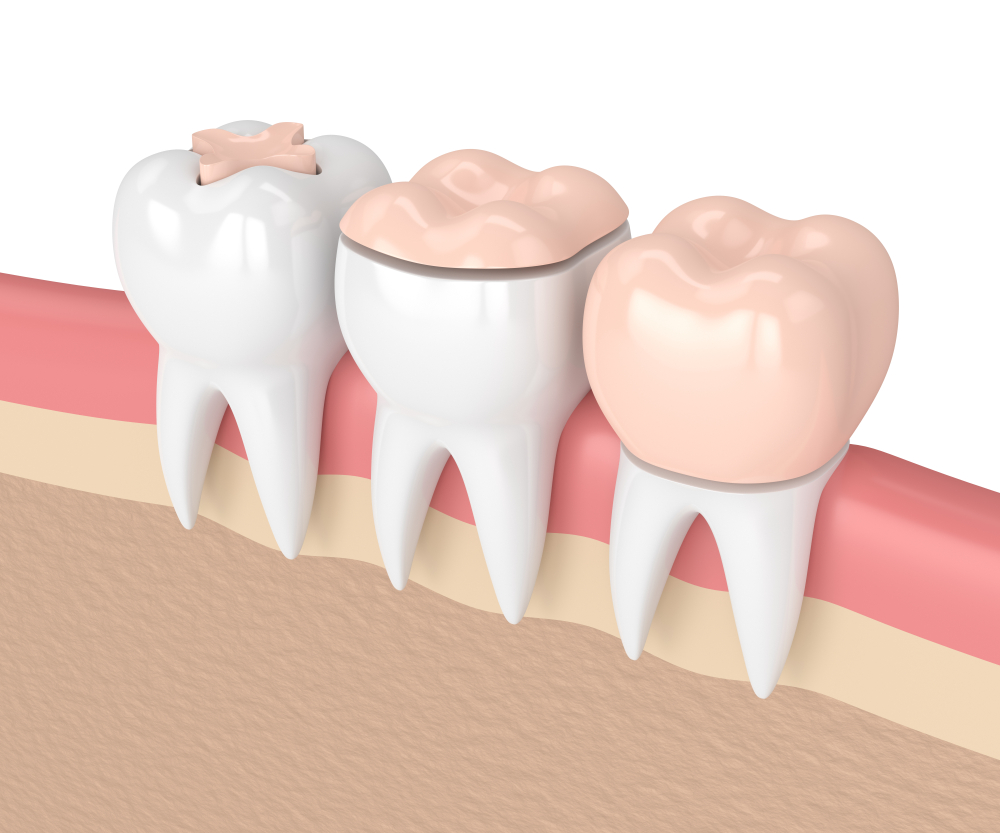

Insurance
We accept many insurances. Please contact one of our Insurance Coordinators to discuss your dental coverage plan.
(718) 948 5111
appointments@sidental.com
Open 7 days a week
Reviews
The dentists are absolutely excellent…
“I have been going here for years. The dentists are absolutely excellent and they always have an appointment available that fits into a busy schedule. I also completed invisilgn and my teeth are perfectly straight now. They also practice preventive medicine and just went in for my 6 month cleaning. Every time feel like I have a new set of choppers and best yet the check up noted no cavities!.”
— J.R
Pleasant visit
“As usual, it was a pleasant visit thanks to Dr. Nasso and her great staff..”
— C.M.
Always treated with courtesy and respect.
“Always treated with courtesy and respect. All of my questions were answered regarding upcoming treatments..”
— J.C.
Smile Profile
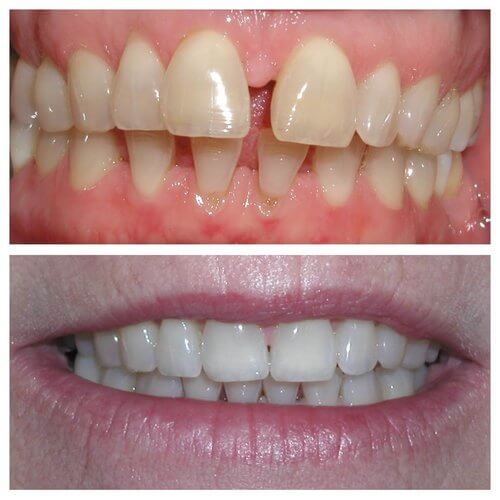
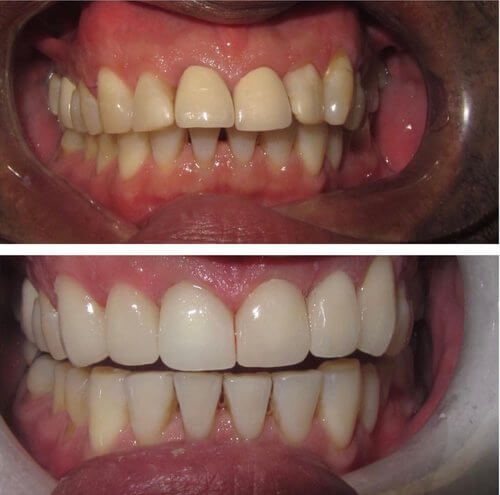
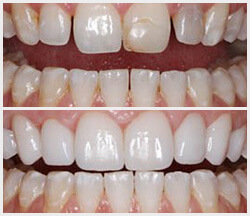
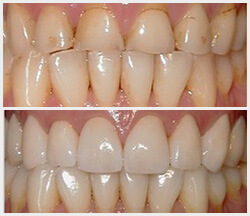
Put your best face forward.
Create a positive change to your teeth and your smile.
